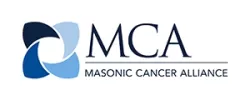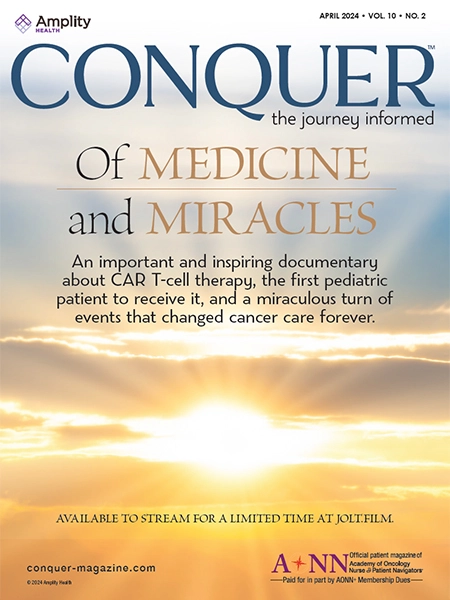CRANBURY, NJ, March 24, 2021 – The Academy of Oncology Nurse & Patient Navigators (AONN+) Leadership Council has been closely reviewing how the COVID-19 pandemic affected cancer care delivery in 2020. In a combined team effort, led by Christian Downs, Executive Director of the Association of Community Cancer Centers, with support from Linda Fleisher, Principal Investigator at Fox Chase Cancer Center, Lillie Shockney, Co-Founder of AONN+, Rani Khetarpal, Vice President of Provider Partnerships at New Century Health, and Mandi Pratt-Chapman, Associate Center Director of Patient-Centered Initiatives and Health Equity for the George Washington Cancer Center, the Leadership Council devised how oncology service lines can remain strong and thoughtfully invest as they recover from the pandemic.
Without question, the COVID-19 pandemic has had a crippling effect on our nation’s healthcare system.1 Revenues have declined, and expenses continue to increase at practices, hospitals, and health systems across the country.
As a service line, our cancer programs and practices have also been significantly impacted. Many patients have delayed testing or treatment, and staff have been pulled in multiple directions to address the immediate need of pandemic response.2
While our nation and healthcare system slowly begin to move out of the COVID-19 pandemic, it is critical that long-term investments made in our cancer delivery infrastructure are not cut to address short-term financial stress. These long-term investments are critical to address the pandemic of inequities in the United States.
This is particularly true as it relates to our cancer program navigators, social workers, and financial counselors, who are vital to our patients, their families, and their caregivers.
There are several key reasons to protect our cancer care team:
- We will have a significant volume of newly diagnosed patients, as well as more patients with advanced disease. A clear impact of the pandemic has been the delay in screening and treatment by patients with cancer.3 It is believed that this delay could affect cancer care delivery for years.4 Our oncology navigators and social workers will be essential in both managing and supporting this influx of patients, as well as addressing the social inequities that exist in our communities.
- Our revenues and expenses will be impacted if we do not have a streamlined and efficient care organization. Years of research indicate that navigation and social work in cancer care greatly improve patient and caregiver experience, clinical outcomes, and control costs.5 Navigation and social work are key to managing costs around no-shows, readmissions, cancellations, and nonadherence to the treatment plan. Revenue will be enhanced because bottlenecks in care delivery and efficiencies can be identified by our navigators and social workers.
- It will be very difficult to reassemble the navigation team. As it relates to the pandemic, evidence suggests that trying to cut staff and then bring them back can be more costly and time-consuming.6 This is particularly true in highly trained support staff, such as navigators and social workers, that are integral to most cancer programs.
- Navigation has been proven to address cancer disparities. Navigation is a core, evidence-based strategy to address health inequities across racial and ethnic minority populations. To build community trust in our health systems and to move the needle on cancer outcome disparities, navigation is a critical tool in our toolbox.
With new testing and mitigation strategies being implemented and improved access to vaccines on the horizon, now is the time to proactively plan for the near future. With proper and realistic planning, members of the cancer care team can be well-positioned to serve their patients with cancer and their families as the pandemic begins to subside.
- www.kaufmanhall.com/ideas-resources/research-report/effect-covid-19-hospital-financial-health
- www.mckinsey.com/industries/healthcare-systems-and-services/our-insights/understanding-the-hidden-costs-of-covid-19s-potent
- https://acsjournals.onlinelibrary.wiley.com/doi/full/10.3322/caac.21651#:~:text=In%20response%20to%20the%20coronavirus,and%20prioritizing%20health%20care%20resources
- www.washingtonpost.com/health/2020/06/18/nations-cancer-chief-warns-delays-cancer-care-are-likely-result-thousands-extra-deaths-coming-years/
- https://pubmed.ncbi.nlm.nih.gov/28685390/
- www.dallasnews.com/business/health-care/2020/05/26/another-pandemic-casualty-baylor-scott-white-will-lay-off-about-1200-and-furlough-others/
The Academy of Oncology Nurse & Patient Navigators, Inc. (AONN+) is the largest national specialty organization dedicated to improving patient care and quality of life by defining, enhancing, and promoting the role of oncology nurse and patient navigators. The organization, which has nearly 8900 members, was founded in 2009 to provide a network for all professionals involved and interested in patient navigation and survivorship care services in order to better manage the complexities of the cancer treatment process.
The Journal of Oncology Navigation & Survivorship® (www.jons-online.com) is the official publication of AONN+. JONS seeks to strengthen the role of nurse and patient navigators in cancer care by serving as a platform for these professionals to disseminate original research findings, exchange best practices, and find support for their growing community.
CONQUER: the patient voice™ magazine (www.conquer-magazine.com) is the AONN+ premier forum for patients with cancer. CONQUER features articles written by and for patients with cancer, survivors, nurse navigators, and other oncology team members. This magazine addresses the issues that patients, their family members, and caregivers face every day in an easy-to-read format. Issues include interviews with patients with cancer, information on access to care, and articles on lifestyle topics such as nutrition, stress management, personal finance, and legal and employer issues. CONQUER also features patient stories that are nominated for the AONN+ Hero of Hope™ award, which is presented at the AONN+ Annual Conference. All stories are compiled in a special issue of CONQUER at the end of the year.
Gwen Coverdale, 267-884-6328













